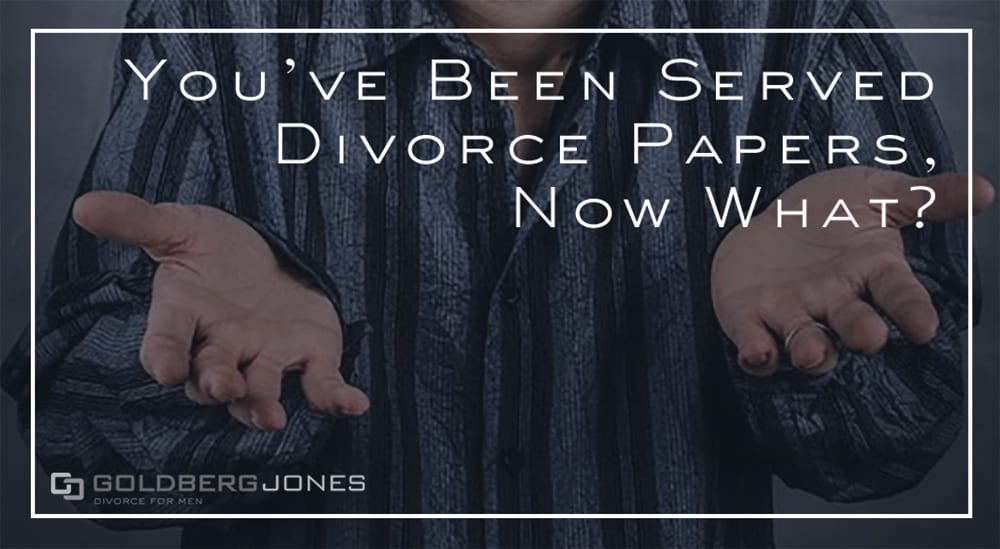What happens when your spouse serves you with divorce papers? A key step in all divorces, it often feels like being blindsided. It also comes with a lot of questions. How do you respond? What do you do next? How should you proceed?
What Does It Mean to Be Served Divorce Papers?
Two things happen when you’re served divorce papers:
First, it functions as formal notice that your spouse has filed to dissolve your marriage. The petition often includes a proposed distribution of assets and debts, custody of any children, child support, and alimony obligations.
Second, after being properly served, this starts a clock in the family court. Each state has a set time in which you must file a response. Regardless of where you live, the countdown begins the day divorce papers are served.
Related Reading: Preparing for a Divorce Consultation
What to Do Next
Once divorce papers have been served, you have two options:
One, you can ignore the filing, in which case the divorce will proceed by default. You lose the right to make arguments on your behalf. This also means the court will likely grant all of your spouse’s requests regarding the division of property, custody, support, and the rest.
Two, you can file a response with the court. When you file a response, consider which state has jurisdiction. This has a major impact on your case.
Since Washington is a no-fault state, there’s no need to assign blame or responsibility. You file for divorce based on irreconcilable differences or an irretrievable breakdown of the marriage.
If one partner believes the marriage can’t be fixed and wants a divorce, that’s all the court needs.
When responding to the petition for divorce you can make your own proposal for the allocation of assets and debts, child support, alimony, and custody. Just because your spouse filed first doesn’t mean they automatically get what they want, you will have your chance to make your case.
Related Reading: Is There a Benefit to Filing for Divorce First?
How to Respond
The best way to proceed after being served divorce papers is to hire an attorney and file a response in a timely manner.
Once you have completed and signed the Response to Petition, you must deliver it to the appropriate court and the opposing party in order to make sure the case does not proceed via default.
Related Reading: Jurisdiction In Divorce And Why It Matters
How to Move Forward
Once you’ve been served divorce papers and submitted your response, the true legal work begins.
If both parties agree on most of the issues at hand, you can file for an uncontested divorce. Much faster and easier, this option also saves money on legal fees. This usually fits best in shorter marriages with no significant property or children.
On the other hand, if there are disagreements or conflicts, things become more complicated. Both sides have to sit down and hash out the specifics on the property, custody, support, and any other points of contention.
Sometimes people can do this on their own, but these negotiations often require attorneys. You may use a form of alternative dispute resolution like mediation or arbitration. If that doesn’t work, cases often wind up in court in front of a judge. Contrary to popular belief, however, most divorces resolve before going to court.
Being served divorce papers can be a big shock. You face an uncertain future when it comes to finances, family, and more. It’s likely in your best interest to talk to a divorce lawyer about the best way to proceed.
Related Reading: Can I Annul My Marriage in Washington?

Comments 1
It’s interesting to know that a lot of divorces don’t even go to court. My aunt is considering to hire online divorce mediation services because she is currently living away from her spouse after a domestic dispute that they had. I do think it would really be for the best if she could be as far away as possible from him to ensure her safety during the divorce process.